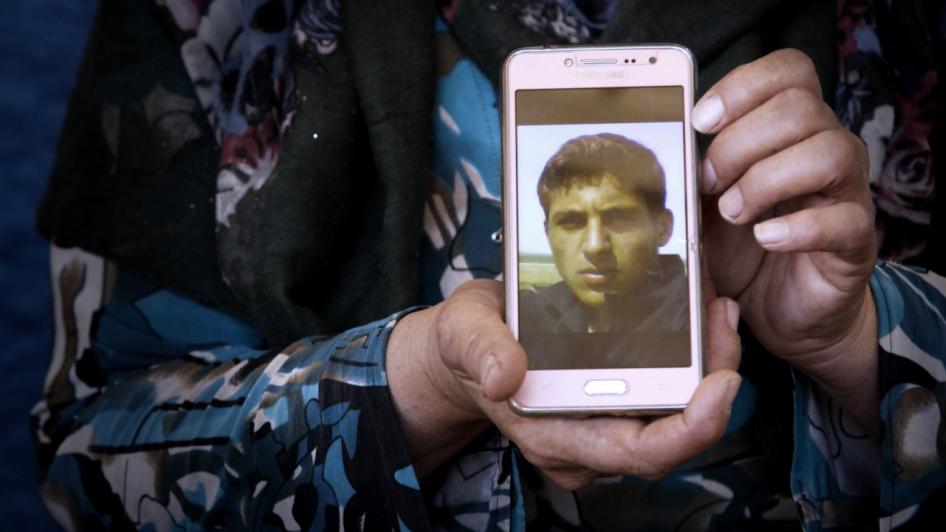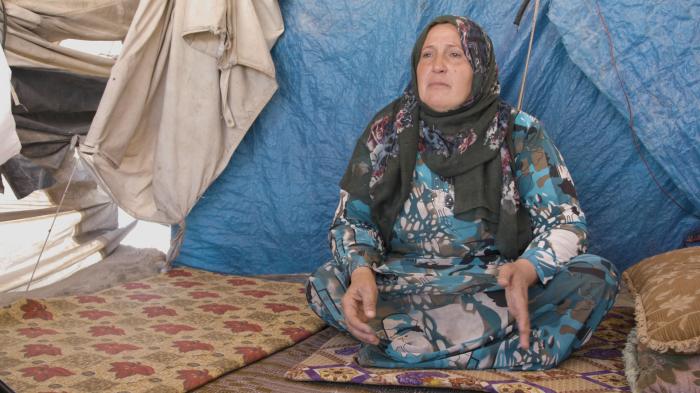In 2013, Ismail al-Hamed, a Syrian doctor and resistance leader, was kidnapped by a group of armed men in Raqqa, the city in northeast Syria that soon would become the headquarters of the so-called caliphate of the Islamic State (ISIS). Al-Hamed’s kidnapping was one of thousands that the armed group carried out to crush resistance during its rule over large swaths of Iraq and Syria.
When a U.S.-led international coalition and its local partner, the Syrian Democratic Forces (SDF), routed ISIS from its last holdout in Syria last March, the families of ISIS victims were filled with hope that the local authorities and coalition countries would help them find their missing loved ones. But the coalition and the SDF, as well as other authorities that now control areas formerly under ISIS, reportedly have been doing little to help.
“Qasd (the SDF), the coalition, they’re refusing to have a mechanism to find our children,” Faten Ajjan, the mother of a young journalist who was kidnapped by ISIS in 2013, told us. “There is total absence internationally. I’m a mother and I was never afraid of ISIS. You are nations, why are you afraid?”
The situation in Northeast Syria has only become more complex, and post-ISIS recovery efforts are stalling. This is partially because of the fickle character of the U.S. policy in Syria and the inability of other anti-ISIS coalition countries to take the lead in recovery efforts. President Trump’s announcement in October that he was withdrawing troops from the area and the subsequent incursions by Turkey only made the situation more complicated. Among the consequences have been additional difficulties that Syrian families face in seeking answers about their loved ones.
In 2013, when ISIS rose to power, the world could not imagine the horrors that its fighters would inflict on the civilians living under their rule.
For years, ISIS sowed terror not only through killing and taking territory, but also by a campaign of kidnapping and detention. Many of those abducted people had formed the backbone of their communities, such as Dr. al-Hamed, and in many cases had been seen as resisting the self-styled caliphate. Young men, journalists who dedicated their lives to exposing human rights abuses in Syria, and residents who tried to protect their communities forfeited their lives in return. Their families spent life savings and endangered their own security trying to answer one question: What happened to my son, my brother, my sister, my wife, my cousin?
As our recent investigation shows, that question remains unanswered. Many of the kidnapped may have ended up in one of the over 20 mass graves uncovered so far in areas previously under ISIS control. Others may have narrowly escaped, or died when the U.S.-led coalition or the Russian-Syrian military alliance warplanes bombed ISIS detention facilities. Some may have been detained by the Syrian government, Kurdish-led authorities or the coalition in the chaos that followed the defeat of ISIS, mistaken for ISIS members when they were really ISIS victims.
It is clear that ISIS’s legacy did not end with its territorial defeat. The terror it inflicted on the civilian population in Syria persists, particularly for those whose family members are still missing.
The local groups controlling the area and the countries that have been involved with the struggle against ISIS owe it to these families to help them find out what happened to their relatives. They need to allocate resources to finding the thousands who disappeared under ISIS. They also need to provide support to families of civilians killed or injured in the battle against ISIS, and to end the abusive treatment of ISIS suspects and their family members, many of whom are themselves victims of the armed group.
The families’ greatest desire is for information. The local authorities in areas formerly held by ISIS — be they Kurdish-led, the Syrian government, or Turkey and Turkish-backed factions — and the coalition members need to designate a focal body to prioritize outreach to the families. They should establish formal investigations to find out what happened to the missing people, make sure the families know what is happening, and share their findings with the families.
The investigators should seek information from ISIS suspects in their custody about what happened to the people it detained and killed. And they need to find out and disclose what happened to prisoners or victims of attacks and airstrikes that affected civilians. The territorial defeat of ISIS was supposed to be a boon for victims of their cruelty. But these victims are still suffering. The de facto authorities in northeast Syria and the international coalition need to set this to right and help people find out what happened to their loved ones so that they can move on with their lives.











